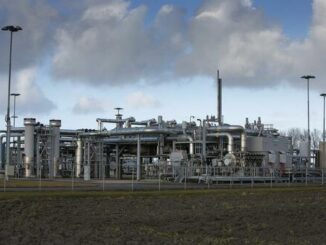
Shell expects its gas trading business to have been significantly lower in the second quarter, compared to a strong first quarter, due to seasonality and fewer optimization opportunities, the UK-based supermajor said in its second quarter 2023 update note on Friday.
Shell anticipates the second-quarter contribution of the gas trading division to be in line with the average contribution of the second quarter in 2021 and 2022.
For the first quarter, Shell reported adjusted earnings of $9.6 billion, driven by “strong trading and optimisation margins for gas and power due to continued price volatility primarily in European and American markets.”
Trading helped Shell and other majors active in the gas trading business to post record earnings for 2022 amid natural gas price spikes and the overall extreme market volatility in energy commodities.
For the second quarter of 2023, Shell expects its oil and gas production to be lower than in the first quarter, reflecting scheduled maintenance, including at its assets in the Gulf of Mexico, Norway, Malaysia, and Brazil.
Marketing results are set to be in line with the first quarter, while Shell’s adjusted earnings at the chemicals sub-segment are expected to reflect a loss for the second quarter, amid lower utilization and a decline in the refining margin from $15 per barrel in Q1 to $9 a barrel in the second quarter.
Shell reports second-quarter earnings on July 27.
Earlier this week, another supermajor, U.S. ExxonMobil, said it expects to report on July 28 sharply lower second-quarter earnings compared to the same period last year and to the first quarter, due to low natural gas prices and lower refining margins.
In an SEC filing on Wednesday, the U.S. supermajor estimates that its second-quarter earnings would be lower than the $11.4-billion profit for Q1, due to up to $2.2 billion lower earnings in the upstream division because of low U.S. benchmark natural gas prices, and another up to $2.2 billion decline in the energy products division, due to lower industry margins.



